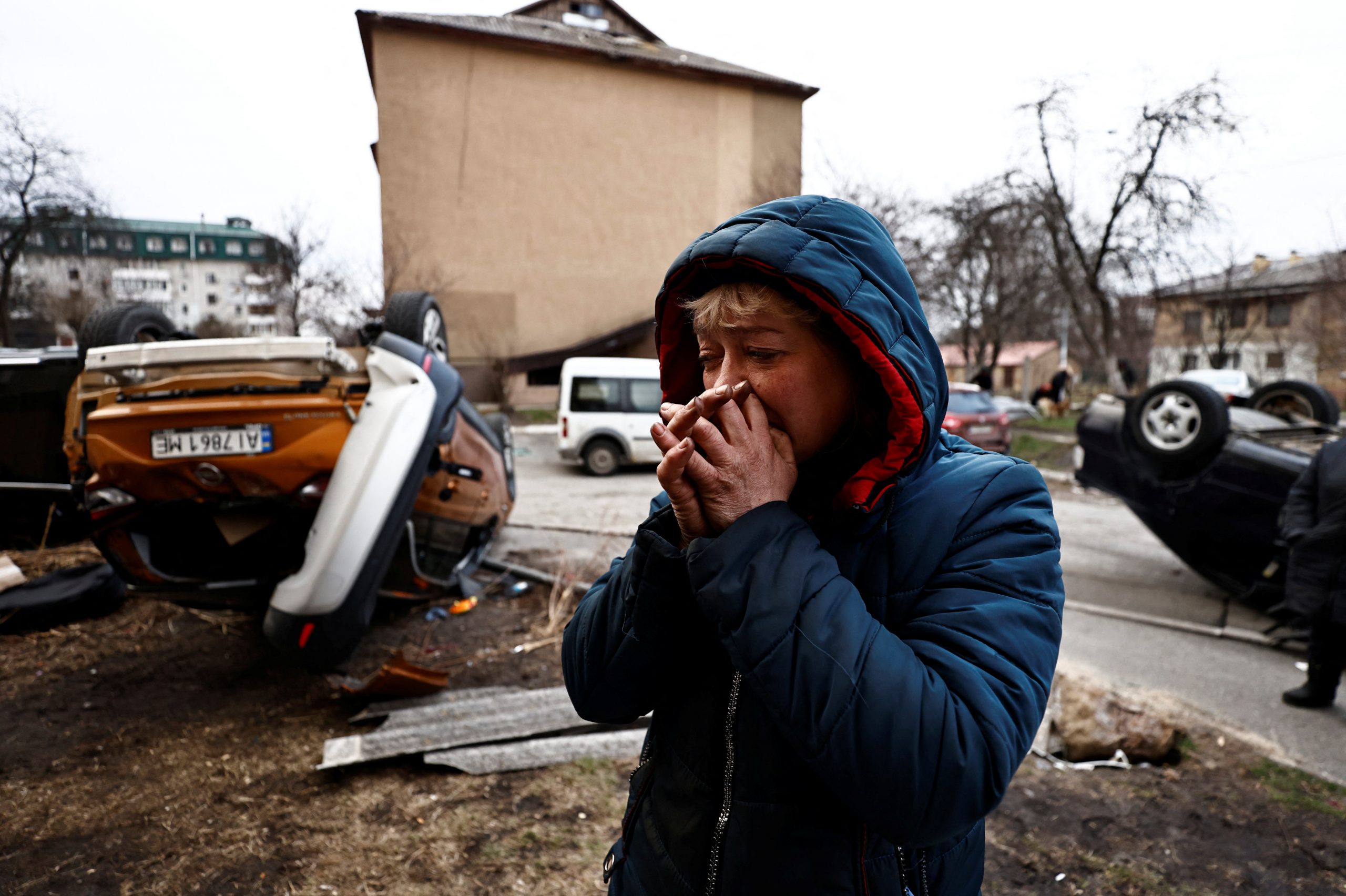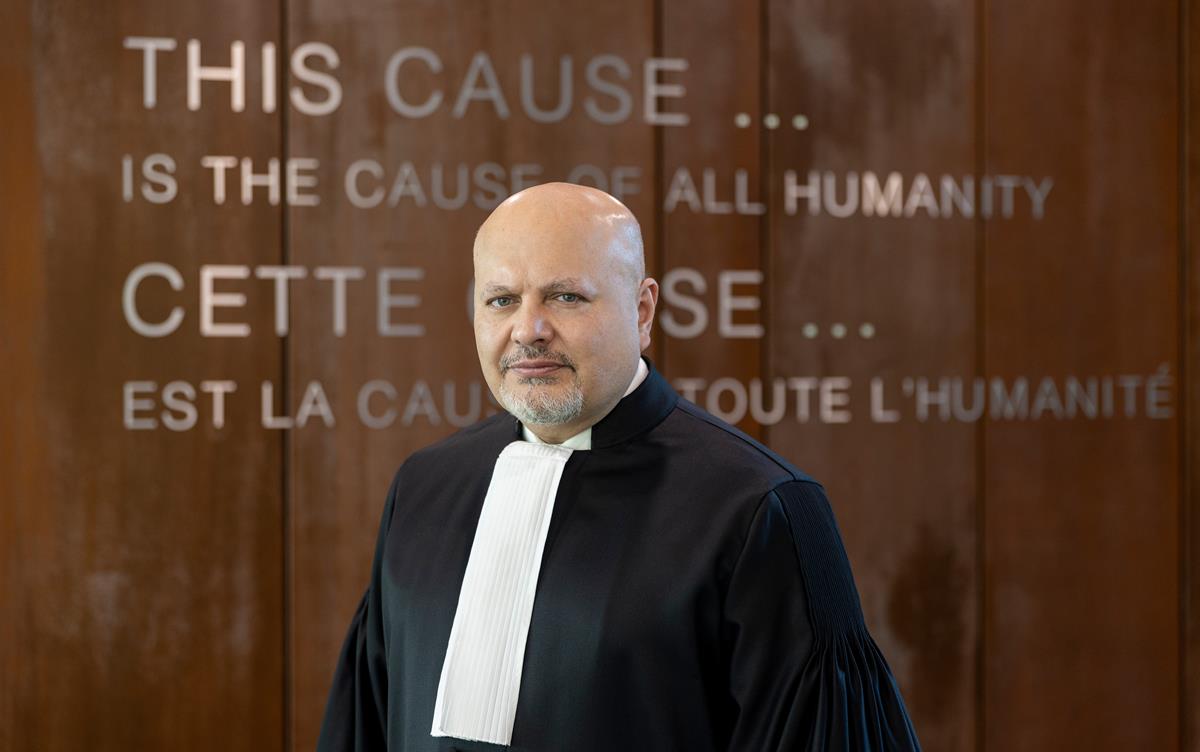Publications
INSS Insight No. 1587, April 11, 2022
Since Russia’s invasion of Ukraine, Karim Khan, the Prosecutor of the International Criminal Court, has begun advancing the investigation of Russian military operations in the context of two proceedings: Russia’s confrontation with Georgia (2008) and the confrontation with Ukraine (since 2014). These proceedings may indicate the policy that Khan seeks to promote – positioning the Court as a central and influential element in real-time confrontations; expanding its attention beyond Third World countries and the African continent; focusing on crimes committed in recent years; and positioning the Court as a protector of the world order. At the same time, the investigation of Russia could be a turning point in terms of world public opinion toward the Court and increase its legitimacy. These trends can affect the investigation regarding Israel, both in terms of pressure on it to cooperate with the investigation, and in terms of legal precedents set in connection with the attacks by the Russian army. Israel must be aware of and monitor these trends.
Since Russia's invasion of Ukraine, Karim Khan, the Prosecutor of the International Criminal Court (ICC), has advanced investigation of the Russian military's actions in the two proceedings at the ICC concerning Russia: the confrontation with Georgia in 2008, and the confrontation with Ukraine since 2014. Khan linked the two investigations to some extent and noted that he found similar patterns of action between them.
The proceedings on Ukraine initially dealt with crimes committed against the background of the annexation of the Crimean Peninsula and the fighting in eastern Ukraine in 2014. Ukraine and Russia are not members of the ICC, but Ukraine has given ad hoc agreement to the Court’s jurisdiction over crimes committed on its territory as of November 21, 2013. In December 2020, after more than six years of preliminary examination, the former Prosecutor of the ICC determined that there was a basis for opening an investigation, but left the decision to her successor. Shortly after Russia's invasion, Khan stated that he was monitoring developments on the ground, and on February 28, 2022 announced that in light of the situation, he intended to proceed and open an investigation as soon as possible and that it would also include suspicions of crimes committed during the current war in Ukraine. He further noted that it would be possible to waive the need to obtain the approval of the Pre-Trial Court to open an investigation, required given that the states are not members of the ICC, if a request is received from member states to investigate the situation. In response, 41 countries referred the situation to Khan, and on March 2, the investigation was officially opened.
Following the opening of the investigation, Khan took a number of unusual steps. Investigative teams were sent to Ukraine with the aim of gathering evidence, despite the ongoing fighting. Moreover, on March 16, Khan himself traveled to Ukraine and Poland in an effort to promote cooperation with the authorities. In addition, a portal was established on the court's website that allows holders of relevant information to contact investigators from the Prosecutor’s office. In view of the lack of resources, Khan called on the ICC member states to support the effort through financial contributions as well as the provision of national experts on a secondment basis to assist his office. Subsequently, on March 28, Khan confirmed that 14 member states had made contributions to his office or declared their intention to do so. He also updated that in light of the multiplicity of digital evidence, he intends to first allocate resources to the establishment of advanced technological tools, which will improve the collection, analysis, and processing of evidence, in order to accelerate their integration into the various court proceedings.
The investigation will deal with allegations of crimes committed in the current conflict, including civilian killings, torture, intentional attacks on civilians and hospitals and other civilian structures, use of excessive force, and use of prohibited weapons. To the extent that there is a move to prosecute Putin and the civilian and military leadership in Russia, their responsibility by proxy for the crimes committed by the soldiers on the ground will have to be proved. In parallel, alleged crimes that the previous Prosecutor detailed at the end of the preliminary investigation on the conflict in 2014 are expected to be investigated, including murder, torture, illegal imprisonment, denial of a fair trial, seizure of prohibited property, transfer of detainees and prisoners, deprivation of liberty, persecution for political reasons, forced disappearance, deliberate attacks against the civilian population and civilian targets, rape, and sexual violence. Conducting a trial in the Court requires the presence of the accused; therefore, even if the investigation leads to arrest warrants against Putin and other Russian officials, the trial will only be conducted if they are arrested and transferred to the Court.
The investigation will not address the invasion of Ukraine itself (the crime of aggression), since, as Khan explained, the Court has no authority to investigate this issue given that Ukraine and Russia are not members of the ICC. Against this background, there are growing calls for the establishment of a special tribunal to prosecute those responsible for the crime of aggression against Ukraine, as was done after World War II. However, this is a difficult move to implement.
In parallel with the investigation in Ukraine, Khan is working to open concrete proceedings as part of the investigation on the 2008 conflict between Russia and Georgia. This investigation was opened in 2016, but in recent years has not appeared to progress. On March 10, the Prosecutor announced that he had asked the Pre-Trial Chamber to issue arrest warrants against three senior members of the pro-Russian separatist forces – a Russian police officer appointed interior minister of the de facto South Ossetian government; the head of a detention facility in South Ossetia; and the Commissioner for Human Rights in South Ossetia at the time of the conflict. He stated that there was reason to suspect that the three had committed crimes of unlawful confinement, torture, inhuman treatment, outrage upon personal dignity, hostage-taking, and unlawful transfer. Khan noted that the investigation revealed that alleged crimes had also been committed by a general in the Russian army, who has since died. The crimes relate to the incarceration of some 170 Georgian citizens, mostly elderly and sick, who remained in South Ossetia after the Georgian forces left, and were held for about three weeks as bargaining chips in a prisoner exchange agreement with the Georgian government. The application for an arrest warrant stated that the detainees were placed in inhuman conditions, and some were subjected to beatings and physical mistreatment. These are the first (overt) arrest warrants dealing with civilians outside the African continent.

On the face of it, the crimes do not appear to be at the highest level of severity, compared to previous cases before the Court that dealt with violent clashes in Africa that included mass murders, rape, using child soldiers, and sexual violence. Khan seems to be aware of this, and in his request noted that although the detention lasted only 19 days, the seriousness of the crimes stems from the importance of protecting the rules regarding the incarceration of civilians; from their age and health status; and from the long-term consequences, as most of the detainees were not allowed to return to their homes and were deported to Georgian territory. Beyond that, the very publication of the request for the issuance of arrest warrants is a rather unusual move. As a rule, arrest warrants are issued covertly and published only later.
Khan's conduct regarding Russia should also be analyzed with reference to previous decisions he has made since his appointment in June 2021: the decision, in the course of the investigation in Afghanistan, to concentrate on the crimes committed by the Taliban and ISIS-Khorasan and in effect to refrain from investigating the allegations of crimes of the United States forces; the decision to give priority to an investigation concerning the deportation of the Rohingya by Myanmar to Bangladesh; and the decision to close preliminary examinations that were conducted over many years, such as the examination regarding Colombia.
The Prosecutor’s activity so far can project the policy that he is likely to promote during his nine years as Prosecutor: positioning the ICC as a central and influential element in real-time confrontations; expanding its attention beyond Third World countries and the African continent; focusing on crimes committed in recent years; and positioning the ICC as a defender of the world order in the face of those who try to destroy it. To advance these goals, Khan seems to be adopting a pragmatic strategy, while demonstrating attentiveness to world politics.
At the same time, the investigation of Russia could be a turning point in terms of world public opinion toward the Court. If in the past that ICC has been sharply criticized, in part regarding the application of its jurisdiction over citizens of a non-member state (particularly on the part of the Trump administration in the context of the investigation in Afghanistan), it is now seen as a positive element in the global response to Russian aggression. Thus, US Secretary of State Antony Blinken announced that the administration will continue to share information regarding the commission of war crimes by Russian forces, including with international institutions. Also on March 24, the UK announced that in addition to financial support to the ICC, it would make military and police personnel available to assist in the investigation, and a few days later stated that it had appointed a British lawyer – who until 2021 served as an ICC judge – as an independent adviser to the Prosecutor General of Ukraine. Beyond that, the referral of Ukraine's case to the ICC by 41 member states can be seen as indication of the legitimacy and broad political support the Court enjoys. Regarding Japan’s referral, Khan himself noted that this is the first Asian country to refer a case to the Court, and that this is evidence of support expanding to another geographical area.
These trends can affect the ICC investigation of Israel, whose opening was announced by the previous Prosecutor a year ago (March 2021), in a number of main ways: first, increased support for the ICC is expected to make it more difficult for Israel to recruit countries and influential parties to put pressure on the Prosecutor to freeze the investigation against it, and this may even lead to greater pressure than in the past to cooperate with it. Second, the argument regarding the illegitimacy of the Court to investigate citizens of a non-member state, which was one of the arguments for harnessing states to oppose an investigation into Israel, is likely to lose its strength, as Russia is not a member of the ICC. Third, in some respects, Russia raises similar claims to Israel's claims that it only attacks legitimate military targets. Even if these are false allegations, precedents set on this issue in the Russian investigation will likely be relevant to investigations concerning IDF attacks. Fourth, it appears from its work of the past year that the Prosecutor’s office also focuses on less serious cases than those prosecuted to date in the Court. Israel must monitor and be aware of these trends, and be prepared in advance for their possible consequences for the investigation into its own case.



